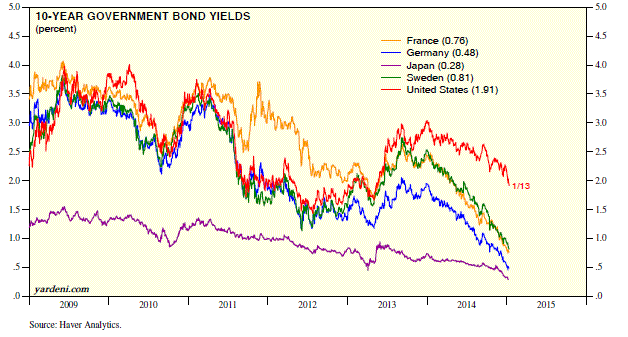
Which app is best for buying shares? There are several apps that are ideal for the beginner, but we've focused this article on three of the best. These apps include eToro. Ally Invest. Merrill Edge. Trading 212. You can download them to start buying shares today. Choosing the right one for you depends on your investment goals and your timeframe. Here are some tips that will help you choose the best app for purchasing shares.
eToro
If you are looking for an app that allows you to buy and sell shares in real-time, eToro is the way to go. You can access thousands of stocks and filter them by industry or sector. eToro also offers a wide range of stocks. You can search for traders by name as well as their performance.

Ally Invest
Ally Invest can be used to purchase stocks. You can also create custom watchlists, and you can use more than 30 drawing tools. It also lets you view historical quotes and peer performance. This makes it ideal for both beginner and advanced traders. This app also has a secure login and is safe to use. Ally Invest employs advanced encryption and security measures to protect your data.
Merrill Edge
Merrill Edge mobile app is the best for buying shares. Its portfolio analysis capabilities make it a top-of-the-line app. The platform gives you a complete overview of your portfolio with analyst ratings and MSCI ESG score. You can even customize your portfolio according to what interests you. Merrill Edge could be the right choice for you if your goal is to create a simple and easy way to sell and buy shares.
Trading 212
Trading 212 is a powerful tool for investing that allows you to access thousands of financial instruments. You can purchase all shares or select shares. The app will automatically place the funds in your cash fund when you place a sell order. The app also has a community forum where you can share your trading ideas with others investors. You can reply to other comments and messages, or watch other people's posts.

TD Ameritrade
TD Ameritrade a prominent online broker offers mobile and web-based options for trading stocks and options, as well as investing. The TD Ameritrade app for buying shares and options allows you to view and manage your account and make trades, including creating stock-specific alerts. It has a modern user interface that is easy to use on all devices, including smartphones, tablets, laptops, and even wearables. Users can view and modify their portfolios as well as trade notes. They can also add and subtract indicators.
FAQ
What is the role and function of the Securities and Exchange Commission
SEC regulates the securities exchanges and broker-dealers as well as investment companies involved in the distribution securities. It enforces federal securities laws.
How can someone lose money in stock markets?
The stock market does not allow you to make money by selling high or buying low. You lose money when you buy high and sell low.
The stock market is for those who are willing to take chances. They may buy stocks at lower prices than they actually are and sell them at higher levels.
They want to profit from the market's ups and downs. If they aren't careful, they might lose all of their money.
Are stocks a marketable security?
Stock can be used to invest in company shares. This is done through a brokerage that sells stocks and bonds.
You could also choose to invest in individual stocks or mutual funds. There are more than 50 000 mutual fund options.
The difference between these two options is how you make your money. Direct investment earns you income from dividends that are paid by the company. Stock trading trades stocks and bonds to make a profit.
Both cases mean that you are buying ownership of a company or business. However, if you own a percentage of a company you are a shareholder. The company's earnings determine how much you get dividends.
Stock trading gives you the option to either short-sell (borrow a stock) and hope it drops below your cost or go long-term by holding onto the shares, hoping that their value increases.
There are three types stock trades: put, call and exchange-traded funds. You can buy or sell stock at a specific price and within a certain time frame with call and put options. ETFs, which track a collection of stocks, are very similar to mutual funds.
Stock trading is a popular way for investors to be involved in the growth of their company without having daily operations.
Stock trading is not easy. It requires careful planning and research. But it can yield great returns. To pursue this career, you will need to be familiar with the basics in finance, accounting, economics, and other financial concepts.
How do I invest in the stock market?
You can buy or sell securities through brokers. A broker can sell or buy securities for you. When you trade securities, you pay brokerage commissions.
Brokers often charge higher fees than banks. Banks will often offer higher rates, as they don’t make money selling securities.
If you want to invest in stocks, you must open an account with a bank or broker.
A broker will inform you of the cost to purchase or sell securities. This fee will be calculated based on the transaction size.
Ask your broker about:
-
Minimum amount required to open a trading account
-
How much additional charges will apply if you close your account before the expiration date
-
What happens if your loss exceeds $5,000 in one day?
-
How long can positions be held without tax?
-
What you can borrow from your portfolio
-
Whether you are able to transfer funds between accounts
-
How long it takes to settle transactions
-
The best way to sell or buy securities
-
How to Avoid fraud
-
How to get help for those who need it
-
Whether you can trade at any time
-
How to report trades to government
-
Reports that you must file with the SEC
-
What records are required for transactions
-
How do you register with the SEC?
-
What is registration?
-
How does this affect me?
-
Who is required to be registered
-
When should I register?
Statistics
- For instance, an individual or entity that owns 100,000 shares of a company with one million outstanding shares would have a 10% ownership stake. (investopedia.com)
- US resident who opens a new IBKR Pro individual or joint account receives a 0.25% rate reduction on margin loans. (nerdwallet.com)
- The S&P 500 has grown about 10.5% per year since its establishment in the 1920s. (investopedia.com)
- Even if you find talent for trading stocks, allocating more than 10% of your portfolio to an individual stock can expose your savings to too much volatility. (nerdwallet.com)
External Links
How To
How to Invest in Stock Market Online
The stock market is one way you can make money investing in stocks. There are many ways to do this, such as investing through mutual funds, exchange-traded funds (ETFs), hedge funds, etc. The best investment strategy is dependent on your personal investment style and risk tolerance.
First, you need to understand how the stock exchange works in order to succeed. This involves understanding the various types of investments, their risks, and the potential rewards. Once you are clear about what you want, you can then start to determine which type of investment is best for you.
There are three main types: fixed income, equity, or alternatives. Equity refers to ownership shares of companies. Fixed income can be defined as debt instruments such bonds and Treasury bills. Alternatives are commodities, real estate, private capital, and venture capital. Each category has its own pros and cons, so it's up to you to decide which one is right for you.
You have two options once you decide what type of investment is right for you. The first strategy is "buy and hold," where you purchase some security but you don't have to sell it until you are either retired or dead. Diversification refers to buying multiple securities from different categories. If you buy 10% each of Apple, Microsoft and General Motors, then you can diversify into three different industries. The best way to get exposure to all sectors of an economy is by purchasing multiple investments. It helps protect against losses in one sector because you still own something else in another sector.
Risk management is another key aspect when selecting an investment. Risk management can help you control volatility in your portfolio. You could choose a low risk fund if you're willing to take on only 1% of the risk. If you are willing and able to accept a 5%-risk, you can choose a more risky fund.
Your money management skills are the last step to becoming a successful investment investor. A plan is essential to managing your money. A good plan should include your short-term, medium and long-term goals. Retirement planning is also included. You must stick to your plan. Don't get distracted with market fluctuations. Keep to your plan and you will see your wealth grow.